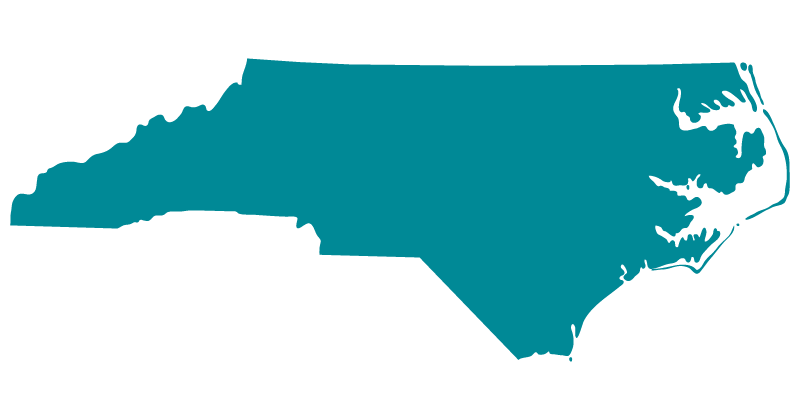When you’re a prospective birth mother considering adoption for your baby, you might think giving your child up for adoption to a family member is the perfect solution. Maybe you have a friend or family member who’s always wanted a child, who’s also someone you know and trust to raise your baby. And, when you place your child for adoption with a friend or family member, you may think that you’ll have a more open adoption where you can see your child grow up and be an active part of their life.
While a relative infant adoption does provide these advantages, you may not know that these types of adoptions also have some unexpected challenges, and that placing your child with another adoptive family through A Child’s Hope provides many of the same exact advantages. We know that each prospective birth mother’s situation is unique, so for you, giving a baby up for adoption to a family member in North Carolina may be the right choice — but you should learn more about the pros and cons of each option before deciding which one is best for you.
Our counselors are always available to answer any questions you have if you give us a call our Pregnancy Hotline: (919) 971-4396, or Text: Pregnant to (919) 971-4396, or email ach@achildshope.com.
If you’re asking, “Can I let a family member adopt my baby after delivery?” there are some important things to consider first.
Pros of Kinship Adoption
When pregnant women choose to place their child with a friend or family member, it’s usually because they want to keep their baby close to them and don’t want them to be raised by strangers. These are completely valid points and may indeed lead to a positive adoption experience for you and your family or friends. Some common benefits of adoption by a family member or friend include:
- Having an established sense of trust: It can be overwhelming to think about placing your child with complete strangers and, while you do get the chance to meet and build a relationship with adoptive parents through our agency, you may wish to choose someone who you love and trust, like a close friend or a family member. You may have already seen them raise other children and know that’s how you want your child to be raised, and you may already have a positive relationship with them that will carry over to your post-adoption contact.
- Less family conflict: Perhaps placing your child for adoption with a different family will cause disagreements within your own family. They may not understand how adoption works and don’t understand why you would place your baby with strangers. While we can help you educate them on the realities of modern adoption, you may think that keeping your child within the family will ease the conflict about you placing them for adoption in the first place.
- Close post-placement contact: When you place a child for adoption with a friend or family member, you may feel better about the possibility of being in their lives as they grow up. While adoption will likely change your relationship with that family member or friend and may come with some challenges (see below), you may have more contact with your baby that you would with another family. However, it’s important to remember that after you place your baby for adoption, you will not be able to legally get them back and become their parent again, even if you develop a close relationship with them.
Cons of a Kinship Adoption
Giving your child up for adoption to a family member may be an option for you, but it’s important to remember that each birth mother’s and family’s situations will be different, so what you think may be advantages may actually lead to more conflict later on if you don’t carefully consider the possibilities. Some of these are:
- Confused family roles: When you place your child for adoption with a family member, you will still biologically be their mother, but legally your relationship may be something else — for example, you’ll be their aunt if you place them with your sibling or even your baby’s sibling if you place them with your parents. As your child grows up, these complicated roles can be confusing for everyone involved. If you’re considering giving a baby up for adoption to a family member, it’s important that you fully discuss what everyone’s roles will be to prevent relationships from becoming more complicated than necessary.
- Disagreements in parenting styles: Likewise, just because you are your baby’s birth mother and are closely involved in their life does not mean you have any say in how they are raised. When you are close to your relatives who have adopted your child, it may be difficult to see parenting styles you disagree with — but you will have no right to tell them to do otherwise. Over time, these parenting disagreements can end up doing extreme harm to your personal relationships.
- Shifts in post-placement contact: One of the reasons you may choose a relative adoption is to be involved in your child’s life more directly than you would through another kind of adoption. Your strong relationship with your baby’s adoptive parents may reassure you that you can have a close relationship with your baby throughout their life — but situations and people can always change. If you and your baby’s adoptive parents do not agree on a formal post-adoption contact agreement, expectations may not be met when you can’t agree on communication frequency later on. Those who complete kinship adoptions usually navigate open adoption contact on their own and, when disagreements arise, the whole family gets caught in the middle — potentially ruining long-standing relationships.
Why Choose Another Family?
Before you decide to place your child for adoption with a family member or friend, it’s crucial that you consider all the possible outcomes of doing so. Our counselors can further explain what your kinship adoption might look like and what challenges might be involved so you can make an educated decision about what’s best for your baby, not just what seems easier at first.
The good news is that many of the reasons you may consider a relative adoption in the first place can also be addressed in an adoption with another family through A Child’s Hope. While you may not know prospective adoptive parents when you first choose them, we will give you a chance to meet them and ask any questions you have. Many of our birth mothers and adoptive families end up developing a strong, genuine relationship where they view each other as extended family members.
In addition to a strong relationship, you can ensure open adoption contact communication with a postadoption contact agreement. Our counselors will help you find the perfect adoptive parents for your baby — which means parents who agree with your contact preferences and are committed to keeping up with them. That way, you know that you will be a part of your child’s life from even before the adoption process begins. Our counselors will also hold both parties responsible for open adoption communication by mediating for as long as necessary.
We know that each situation is unique, so even if you’re considering giving a baby up for adoption to a family member in North Carolina, our counselors can help you understand the adoption process and move forward with a solution that works for you. To learn more, please contact us today for free and with absolutely no obligation.
Click a star near where you live on the NC map to see what counselor would be assigned to you.
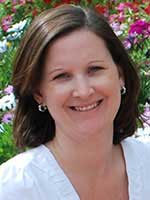
Kelly Dunbar
Adoption Counselor/Homestudy Supervisor - Triangle
As an adoptive parent I truly have a passion for adoption. There is no greater joy than helping to create a family! I love this job and I love working with adoptive parents as well as the birth parents. When it all comes together it is an awesome experience! Kelly is a graduate of NC State University where she earned a Bachelor of Social Work. She also received her Master of Social Work from the University of South Carolina. Kelly has been working with children, families, in the home and in communities for 18 years. Kelly has been working with birth mothers and adoptive parents for the last 5 years. Besides working, she has a great husband and three fabulous children, Landon, Parker and Ansley. Kelly and her husband adopted their daughter with the help of ACH and feels as though her personal experience helps her relate to other adoptive families.
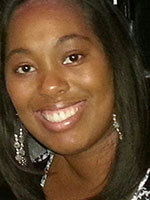
Sloane Mosley
Greensboro
Sloane completed her undergraduate degree in Human Services Counseling at Old Dominion University and holds a Master's Degree in Social Work from the University of Southern California. Sloane has been working with children, birth mothers and adopting families for more than 10 years. She loves advocating for children and helping women during pregnancy.
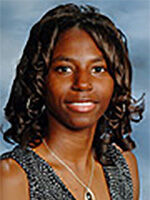
Lakisha Brown
Winston-Salem
Lakisha completed her undergraduate degree in Sociology with a concentration in Social Welfare at Winston-Salem State University. She received her Master of Social Work from Syracuse University. Lakisha has worked with children, individuals and families for more than 12 years. Her experience includes working with at-risk youth, homeless children and families, child mental health, as well as school social work and case management. She is also a long-time basketball fan, a former player and coach. She played at Winston-Salem State University and coached women’s basketball at Elon University and Syracuse University. Lakisha and her husband reside in Alamance County, with their young son.
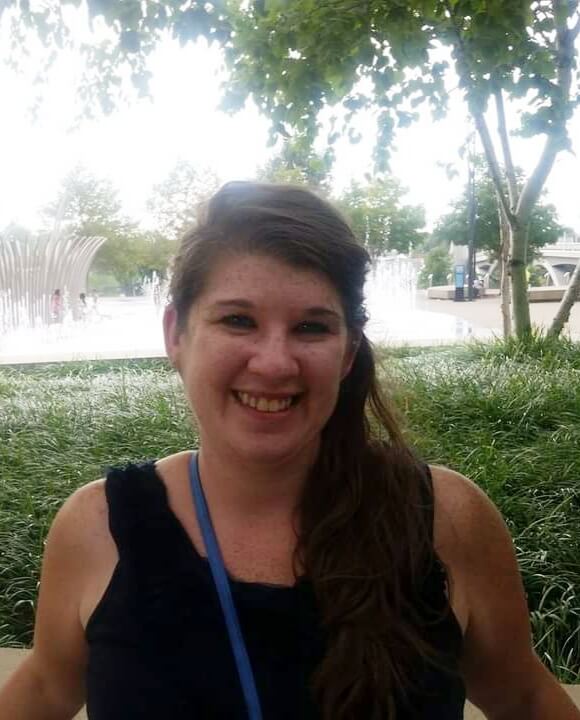
Jessica Otolinsky
Asheville
Jess completed her undergraduate degree in Communication at the University of Pittsburgh at Johnstown and earned her Master of Arts degree in Clinical Mental Health Counseling from Messiah College. Her professional experience includes case management, education, women’s behavioral health including a focus on pregnant mothers, and working with kinship and domestic adoptive families who have experienced trauma. Jess is a native of central Pennsylvania though loves living in Asheville with her significant other. When she is not working, she is likely caring for her puppy and dog, painting, practicing yoga, camping or planning her next road trip to see family and friends or have an adventure in some new place!
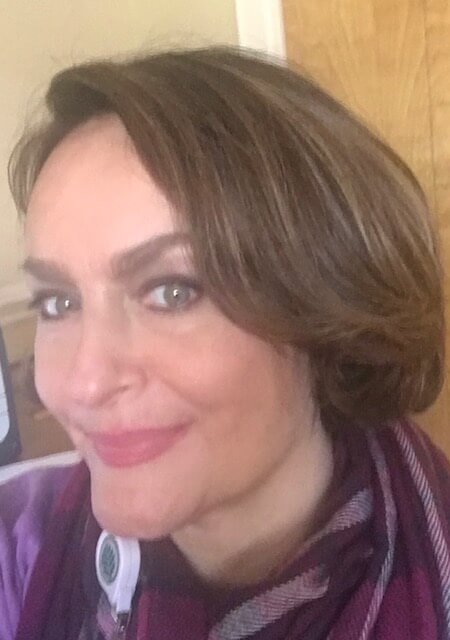
Sylvia Senbel
Charlotte
Sylvia is a graduate of Western Carolina University, where she earned a Bachelor of Social Work. She also received her Master of Social Work from the University of North Carolina. Sylvia has been working with children and families for more than 19 years. She enjoys gardening, reading, hiking, and spending time with her husband and three boys. She also loves animals, especially her dog Jazzy.

Nicole Barnes
Jacksonville
Nicole completed her undergraduate studies at Chowan University in Psychology with a concentration in Alcohol & Drug Studies and a minor in Criminal Justice. Nicole has provided services to adolescents, teens, college students, the Department of Corrections, the Department of Parole and Probation, the NC Division of Motor Vehicles, the Division of Transportation, and the Department of Defense. She is a Certified Alcohol & Drug Counselor and has been working in the mental health field for 15 years.

Suzanne Mangum
Triangle
Suzanne was the primary pregnancy care manager stationed at Duke high-risk perinatal clinic for 20 years. She has a BS in Social Work at UNC Pembroke and is a licensed School Social Worker. She recently worked as a case manager in a substance abuse disorder residential program for women with young children. Suzanne is a “Durhamite” but has resided in Wake County since graduating. Her biggest accomplishment has been happily raising her 14 yo daughter and 3 poodle mixed pups.
